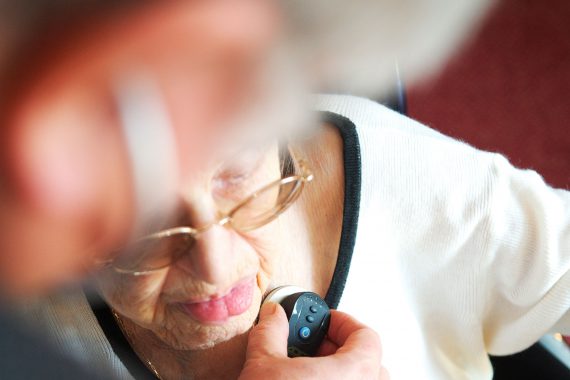GPs to keep savings under £1.4m scheme to slash care home prescribing

Exclusive NHS managers in one area of England are offering GPs half of the cash saved under a scheme to radically reduce drugs prescribed to elderly patients living in care homes, Pulse has learned.
The prescribing incentive scheme is designed to achieve savings of £2 per patient – of which £1 per patient is returned to GP practices that are successful in achieving the savings – but local GP leaders have advised practices not to sign up.
A paper from NHS Oxfordshire CCG suggests GPs use prescribing aids to audit 10% of care home residents over 70 who have frailty and multimorbidity, and initiate a medication review to ‘rationalise’ prescribing.
The cost-cutting scheme is being offered to all GP practices in the county for 2017/18 ‘as encouragement and reward to improve the quality, safety and cost effectiveness of prescribing’, the paper said.
Under the scheme, practices are asked to review prescribing in a chosen area where the effectiveness of prescribing could potentially be improved, ‘without impacting on the quality of patient care’.
It adds that if practices achieve the full £2 per patient target then they will receive a payment ‘equivalent to £1 per patient’.
For any further savings achieved in excess of this, the practice will be entitled to 50%. All payments under the scheme will go into practice funds and not to individuals.
The scheme is aimed to deliver initial target savings of £1.45m for the CCG but it says here is also opportunity for additional savings through agreement of individual practice plans.
But GP leaders criticised the CCG for taking a cost-saving approach to its medicines optimisation scheme.
Dr Andrew Green, the GPC’s clinical and prescribing lead, told Pulse: ‘The danger here is that [the CCG] should not approach it from the view to reducing costs.
‘They should approach with a view to getting the right care for the right patient.’
He added: ‘In frail patients in care homes it is highly likely that is a case of stopping, rather than starting, medication.
‘So it might well be that the result is cutting costs, but that mustn’t be the aim. The aim must be to get appropriate care to the right patient.’
The entire scheme has already been roundly rejected by the Berkshire, Buckinghamshire and Oxfordshire LMCs (BBOLMC) on a number of grounds and it is advising practices not to sign up.
Chief executive Dr Paul Roblin told practices in a news bulletin that this was because the scheme may not ‘pass the bottom line test on workload versus reward, especially as those doing the work are not directly rewarded for the time they spend’.
The LMC said the scheme would add workload burden for practices as there will be quarterly reviews of progress and no resources made available to implement the scheme. Practices will also have the burden of demonstrating actual savings achieved, the update said.
But NHS Oxfordshire CCG said that ‘the decision has been taken to go ahead as we believe the scheme offers the right balance of incentive to the practices whilst also evidencing good governance of quality and funding’.
A spokesperson said: ‘The aim of the Prescribing Incentive Scheme is to review medicines and prescribing in care homes and with the frail elderly in order to optimise medication.
‘There is multimorbidity and polypharmacy in this group of patients leading to many potential problems, including side effects, non-adherence and medication waste.
‘The incentive scheme will encourage practices to audit and review their prescribing in this group of patients to optimise their medicines management.’
In terms of safeguards the CCG stresses that it will be using ‘nationally endorsed tools and resources e.g. STOPP START ’.
It could not give details on the number of practices that have signed up despite the LMC’s concerns, as the deadline had been extended to sign up, having initially been set to 5 May.
Visit Pulse Reference for details on 140 symptoms, including easily searchable symptoms and categories, offering you a free platform to check symptoms and receive potential diagnoses during consultations.









